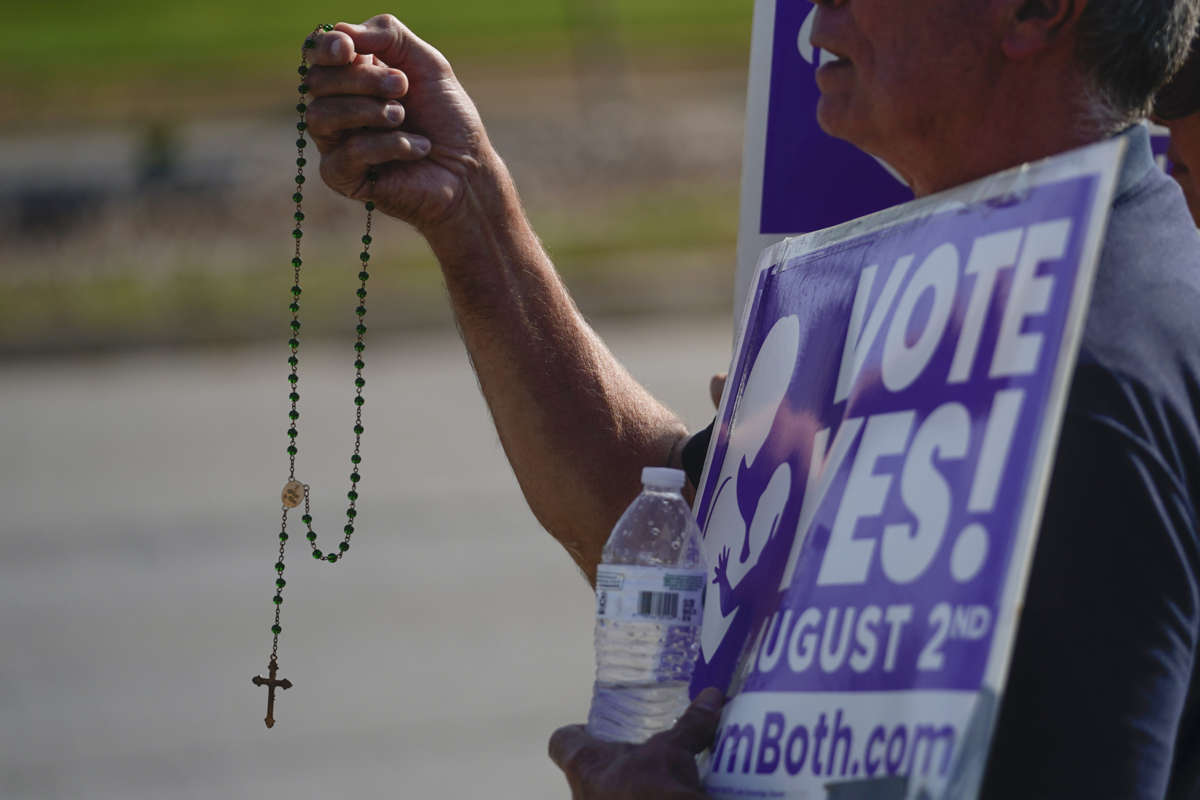New polling finds that nearly half of Americans think the U.S. should be a Christian nation — and that, among those who believe as such, over half think that the word of the Bible should take precedence over the will of the public when it comes to writing laws.
The research, by Pew Research Center, finds that 45 percent of adults surveyed say that the U.S. should be a Christian nation, while 51 percent disagree. While two-thirds of Americans say that churches and other houses of worship should stay out of government affairs, there is still a sizable — and perhaps alarming — amount of Americans who believe that Christianity should guide U.S. law, the polling found.
Among those who said that the U.S. should be a Christian nation, a majority (52 percent) said that the federal government should never declare an official religion. But still, among that group, a larger share (54 percent) said that the Bible should have more influence on U.S. laws than the will of the public, while 22 percent said that the Bible should have an impact but not overrule the will of the people. This means that about 27 percent and 19 percent of the poll’s respondents agree with these statements, respectively.
Additionally, about a third of the group that believes that the U.S. should be a Christian nation said that religious diversity “weakens American society,” or about 19 percent overall.
Pew notes that some seemingly conflicting views shown in the poll may be explained by the fact that respondents may not fully agree on what it means for the U.S. to be a “Christian nation,” or that respondents don’t fully understand the implications of such a declaration. For instance, 60 percent of respondents said that the U.S.’s founders originally intended for the U.S. to be a Christian nation, even though it is explicitly written in the First Amendment that U.S. lawmakers should never establish a national religion through law.
Some respondents may think that Americans should act under a unified set of morals, not that it should be written into the law, Pew said. Or, they may simply think that a majority of the population is already Christian — as exemplified by the fact that 33 percent of Americans evidently think that the U.S. is already a Christian nation, the poll found.
However, the fact that there is a rather large portion of respondents who seem to be hostile to religions other than Christianity and that they believe the Bible should essentially be translated as rule of law is concerning, especially in a time when Republicans are increasingly embracing Christian nationalism.
Christian nationalism is a dangerous ideology closely associated with white supremacy and fascism; moves like the Supreme Court’s Christian, far right judges ruling to overturn federal abortion rights earlier this year are an example of the spread of Christofascism on the right and inside the corridors of power.
The ideology is still unpopular, the survey found. Five percent of respondents said that they have a favorable opinion of Christian nationalism — a large number for such a fringe and malignant view, but still a small proportion overall. About a quarter of respondents said they have an unfavorable view of Christian nationalism, while 54 percent said they have never heard of the ideology.
5 Days Left: All gifts to Truthout now matched!
From now until the end of the year, all donations to Truthout will be matched dollar for dollar up to $50,000! Thanks to a generous supporter, your one-time gift today will be matched immediately. As well, your monthly donation will be matched for the whole first year, doubling your impact.
We have just 5 days left to raise $50,000 and receive the full match.
This matching gift comes at a critical time. As Trump attempts to silence dissenting voices and oppositional nonprofits, reader support is our best defense against the right-wing agenda.
Help Truthout confront Trump’s fascism in 2026, and have your donation matched now!
